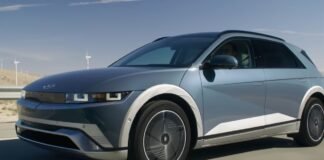Last week, we had the chance to test drive the Lexus RZ in Fort Lauderdale, and it left a lasting impression. This luxurious EV recently received a significant price drop, with the starting price reduced by $10,000 for the front-wheel-drive model. The RZ stands out as an exceptional city vehicle: quiet, smooth, and outfitted with premium materials. Its design is sleek and modern—particularly in the single-tone option—and we even find it sharper than the RX. While all-wheel drive is available, it’s not essential given the vehicle’s impressive performance.
How the Lexus RZ Stacks Up Against the Toyota bZ4X

The price reduction for the Lexus RZ positions it as a strong competitor to Toyota’s 2025 bZ4X. Recently announced, the updated bZ4X also comes with a price drop: $6,000 less for the XLE grade and $5,400 less for the Limited grade.
Both trims are available in front-wheel drive or all-wheel drive. Additionally, Toyota has introduced a bold Nightshade Edition, featuring exclusive styling upgrades and standard all-wheel drive.
Why All-Wheel Drive Isn’t Always Ideal for EVs
While all-wheel drive can be useful, it’s less practical for EVs like the Lexus RZ and Toyota bZ4X. These vehicles, built on the e-TNGA platform, struggle with efficiency in cold weather and slow DC fast charging speeds.
If you’re in a region with moderate weather, the front-wheel-drive models provide better range and efficiency, making them the smarter choice for most drivers.
Features and Technology in the bZ4X

The Limited grade of the bZ4X includes several advanced features, such as Traffic Jam Assist, Lane Change Assist, and Front Cross Traffic Alert. However, these features have their downsides.
For instance, Traffic Jam Assist is subscription-based after the first year, and Front Cross Traffic Alert resets to “on” after every restart. We recommend the base XLE grade, which offers practical features like a dual-voltage charging cable and a year of complimentary EVgo network charging.
Leasing vs. Buying: What Makes Sense?
For the 2025 model year, the bZ4X starts at $37,070 for the XLE front-wheel-drive model, reflecting a 14% price reduction. Given the rapid depreciation of EVs and the ever-evolving technology, leasing is the better option for vehicles like the RZ and bZ4X. Additionally, leasing allows you to benefit from the $7,500 EV tax credit, which isn’t available for outright purchases of these Japanese-built models.
Nightshade Edition: Style at a Premium
The Nightshade Edition of the bZ4X introduces features such as 20-inch wheels, black accents, and a leather-trimmed steering wheel with red stitching. However, the larger wheels reduce range, making this edition more about aesthetics than practicality. Unless the design is a major selling point for you, the XLE grade remains the best value.
Looking Ahead: Toyota at CES and Woven City Updates
In January, Toyota will make a rare appearance at CES, showcasing their futuristic Woven City project and possibly unveiling new hydrogen fuel cell technology. Located at the foot of Mount Fuji, Woven City is a visionary project emphasizing sustainability and connectivity.
We’re excited to see what Toyota has in store and hope to catch a glimpse of Akio Toyoda, a highly respected figure in the automotive industry.
Final Thoughts
With recent price drops, both the Lexus RZ and Toyota bZ4X are compelling options for city EVs. However, leasing is the best approach to maximize incentives and avoid the pitfalls of depreciation.
Stay tuned for more updates from the Dal Motors editorial team as we cover the latest developments in the automotive world, including our CES coverage and insights into Japanese car innovations.


